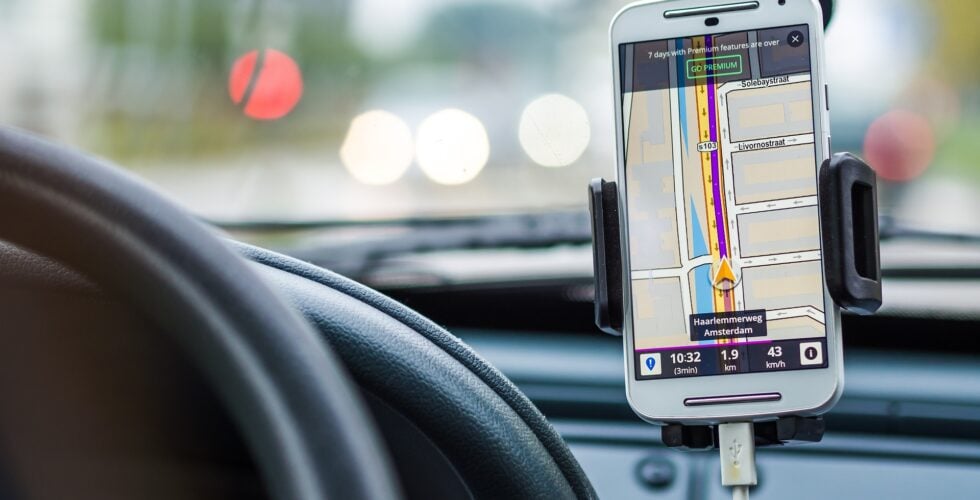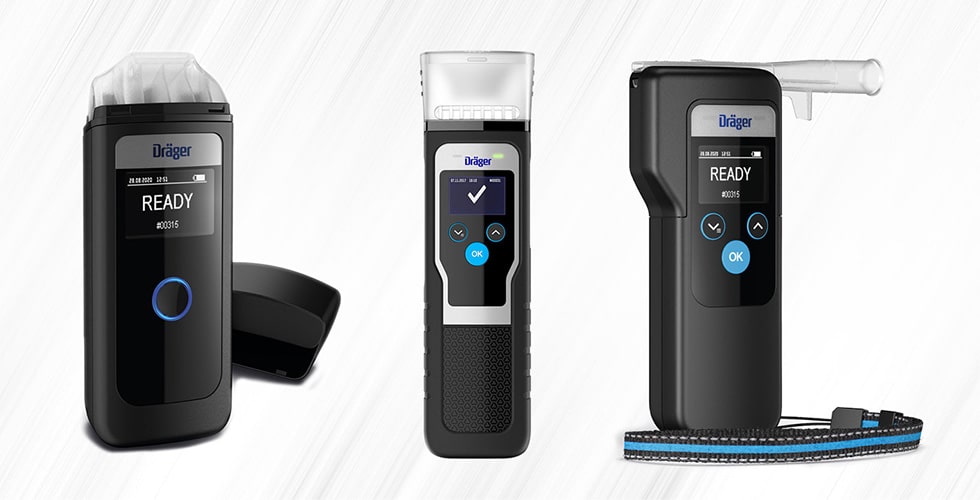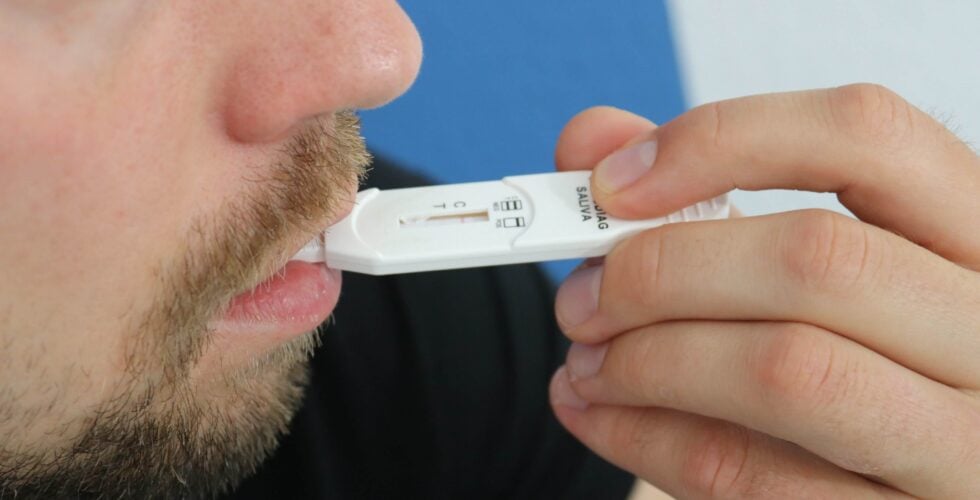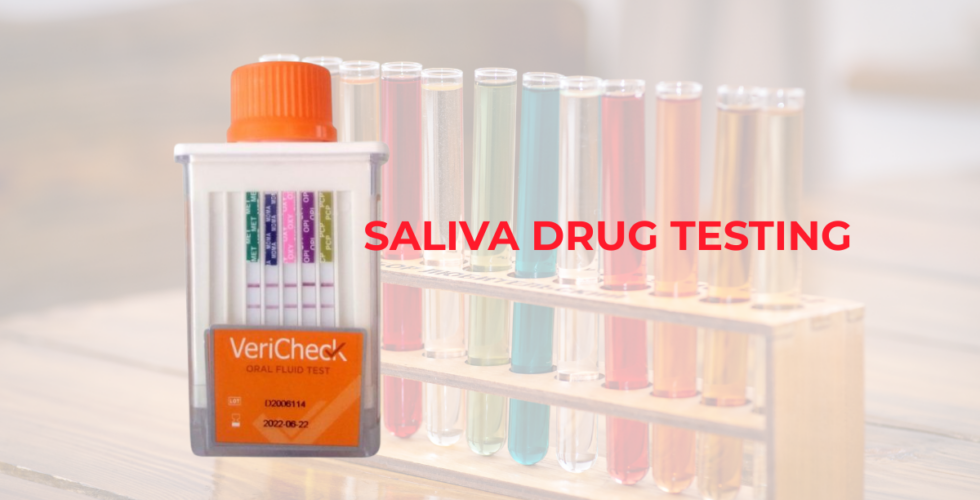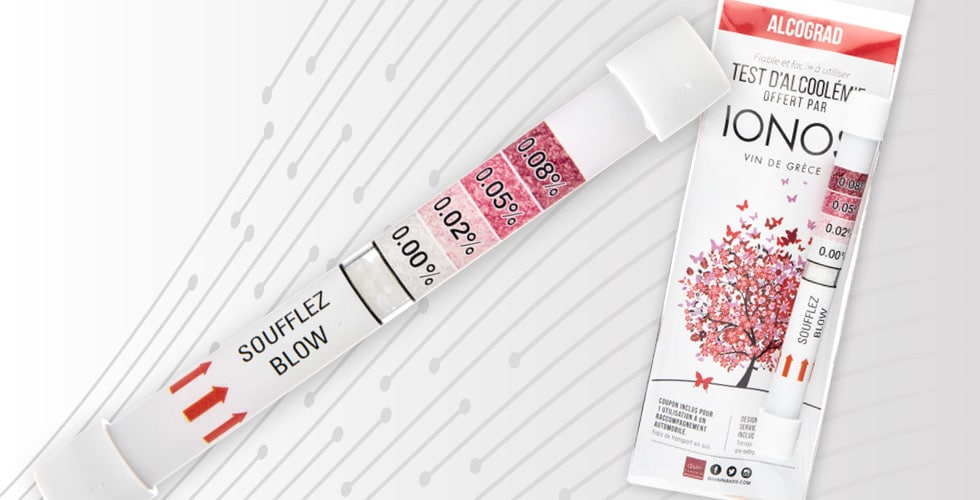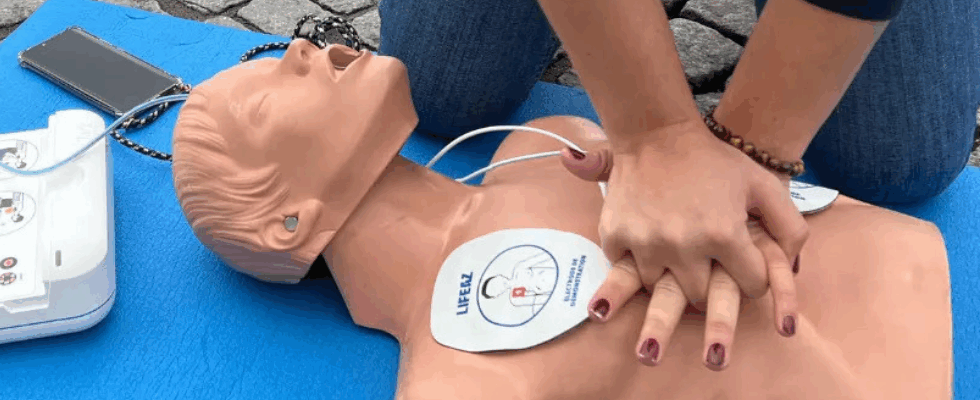What is the difference between a breathalyzer and an alcohol test?
Understanding the difference between a breathalyzer, an alcohol test, and an ethylometer can be confusing. Yet, these tools play a vital role in preventing drunk driving, both for individuals and for businesses, bars, or restaurants. This guide will help clarify things.
Breathalyzer, alcohol test, alcotest®: Definitions and terminology
The terms breathalyzer, alcohol test, and alcotest are often used interchangeably. Here’s how they differ:
- Alcohol test: a device that detects the presence of alcohol in exhaled air. It can be either chemical (disposable) or electronic (reusable).
- Breathalyzer (or ethylometer): often used to refer to a professional electronic device, more accurate, and used by law enforcement.
- Alcotest®: simply an alternative spelling of “breathalyzer”, mostly used in Europe.
👉 In short: an alcohol test is for detection, a breathalyzer is for precise measurement.
How does an alcohol test work?
Chemical alcohol test (disposable)
- Works by chemical reaction with alcohol in exhaled air.
- A color change indicates the level of alcohol.
- Single-use, low cost, ideal for occasional use.
Electronic alcohol test (personal)
- Uses electrochemical or semiconductor sensors.
- Provides an approximate numerical result.
- Recommended for drivers who want to check their BAC before driving.
How does a breathalyzer (or ethylometer) work?
- Used by law enforcement and some businesses.
- Operates with highly accurate electrochemical or infrared sensors.
- Measures the exact blood alcohol content (BAC) in exhaled air.
- Requires regular calibration.
⚠️ The ethylometer is legally recognized, unlike a personal alcohol test.
Main differences between an alcohol test and a breathalyzer
| Feature | Alcohol Test | Breathalyzer (Ethylometer) |
| Type | Chemical or electronic | Professional electronic |
| Accuracy | Moderate | Very high |
| Reusable | Yes (electronic) or no (disposable) | Yes |
| Cost | Affordable | More expensive |
| Intended Use | Personal or occasional | Professional, legal |
| Legal Recognition | No (indicative use only) | Yes (legally admissible) |
Legal framework in Canada and Quebec
In Canada, there’s no legal requirement to carry an alcohol test in your vehicle. However:
- Police use certified breathalyzers.
- Employers may require alcohol testing for safety reasons.
- In Quebec, more and more businesses are adopting electronic alcohol testers to prevent workplace incidents.
How to choose the right device?
The choice depends on your needs:
Personal use
- Choose a compact electronic alcohol test, easy to use.
- Ideal for parties, events, or personal driving.
Business use
- Opt for a certified breathalyzer, reliable and calibrated.
- Recommended in high-risk sectors: transportation, heavy machinery, etc.
Restaurants and bars
- Offering disposable alcohol tests to customers is a great preventive gesture.
- Enhances your establishment’s social responsibility.
Tips for purchasing and maintenance
- Select devices certified CE or DOT (Canada/USA).
- Check technical specifications: sensor type, battery life, accuracy.
- Electronic alcohol tests should be calibrated every 6 to 12 months.
- Avoid untested or uncertified low-cost models.
🛒 On alcoprevention.com, you’ll find a full range of electronic breathalyzers, disposable alcohol tests, and professional devices, with expert advice available.
Road safety and prevention
Owning a breathalyzer or alcohol test means:
- Taking preventive action against alcohol-related accidents.
- Promoting responsible driving.
- Saving lives, including your own.
FAQ – Frequently Asked Questions
What is the shelf life of a disposable alcohol test?
About 2 years. The expiration date is printed on the tube.
Is a breathalyzer mandatory in Canada?
No, but strongly recommended, especially for businesses.
How can I tell if a breathalyzer is reliable?
Make sure it is certified, properly calibrated, and sold by a reputable distributor.
Can I use a breathalyzer to test my employees?
Yes, in a clear legal context, especially in safety-sensitive industries.
Conclusion
The difference between a breathalyzer and an alcohol test mainly lies in their accuracy, intended use, and legal status. For personal use, an alcohol test is usually sufficient. In professional settings or for precise readings, a certified breathalyzer is essential.
➡️ Understanding these tools helps reduce the risks associated with drinking and driving.


